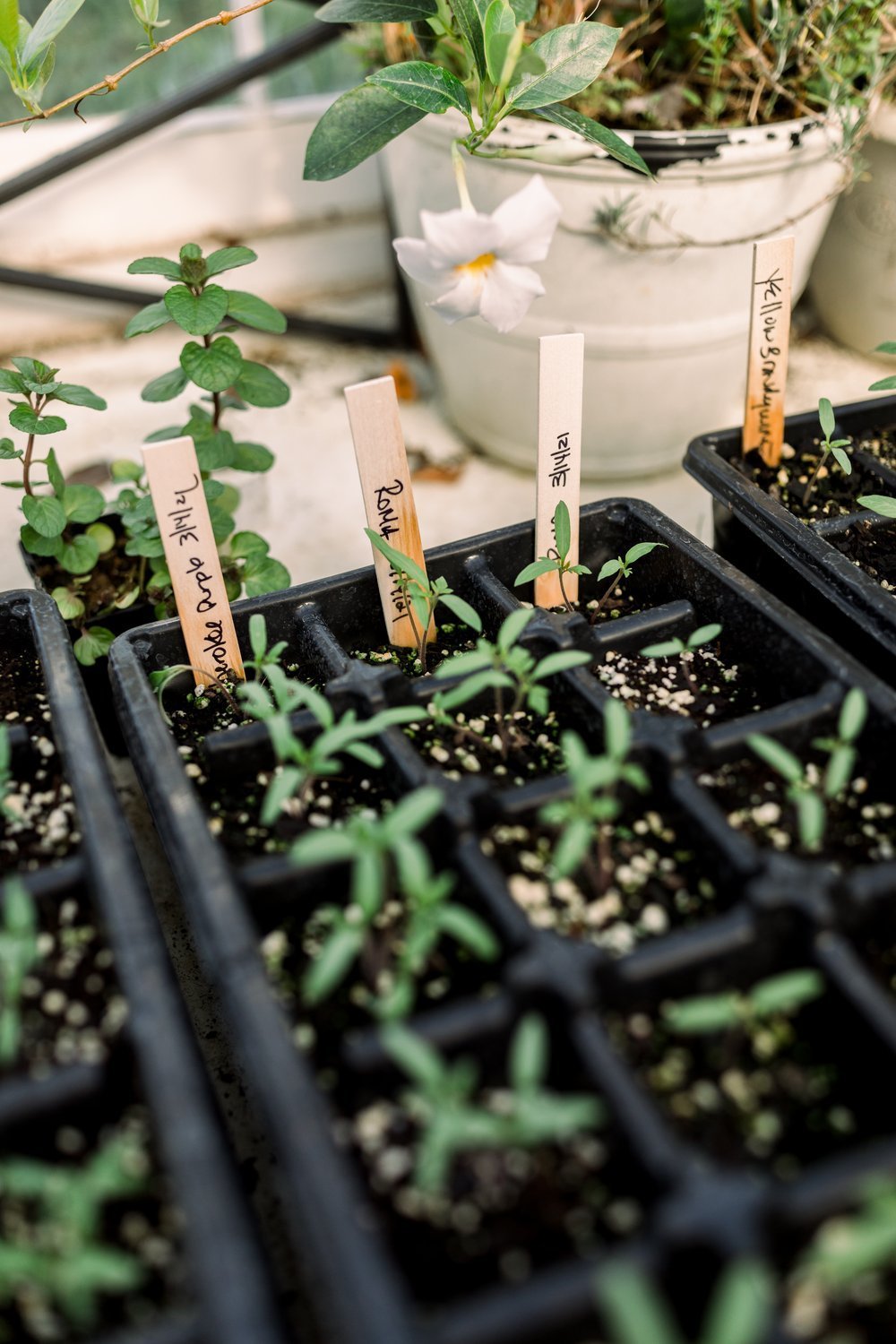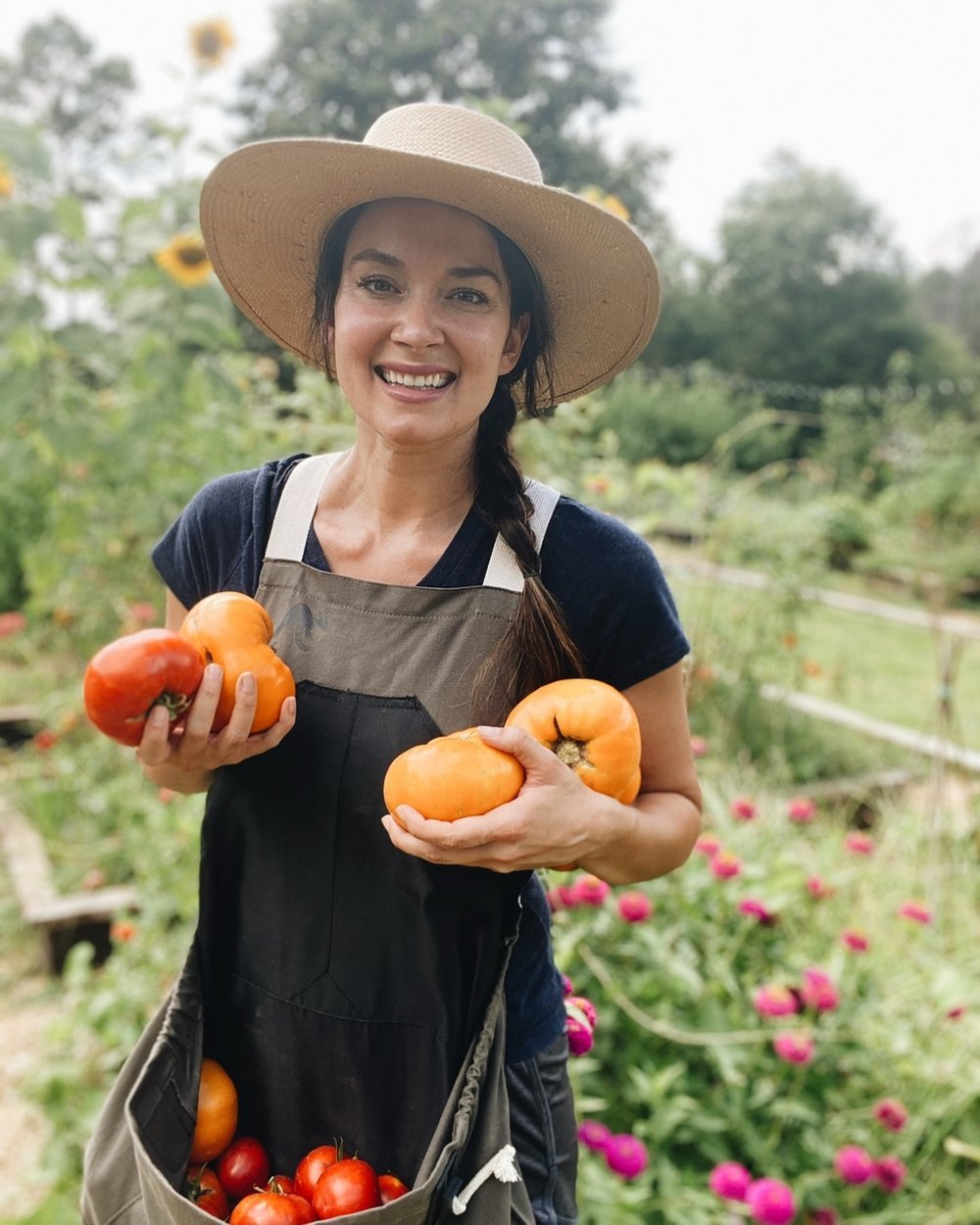11 Reasons To Grow Heirloom Seeds In Your Garden
One of the most exciting and rewarding things about gardening is seeing new life emerge. When you plant a tiny little seed and watch it sprout and grow into a healthy plant, one cannot help but be in awe.
Planning your garden for the next season is a fun and exciting time. There are so many possibilities! To kick the planning process off, you need to think about which produce you would like to enjoy in a few months, and then you need to get those seeds to bed!
Different Types Of Seeds
For a first-time gardener, choosing seeds may be overwhelming. There are so many varieties, do's and don'ts, types, etc. How do you select the best seeds? What are the differences in the types?
More below, and 11 reasons why we choose to grow heirloom seeds!
Heirloom varieties are seeds that typically existed more than 50 years ago and have been carefully handed down through the generations. These produce seeds that you can reuse yearly, and how new varieties have developed throughout history as plants cross-pollinate. Heirloom varieties are not tampered with or modified in any way. This results in a healthy bio-diversity of seed types that can often have better resistance to various crop diseases and many other benefits.
F1 varieties or hybrids are created by crossing two parent varieties to create a new one with superior traits to either of the parents. These seeds are more expensive as it has to be re-created from the parent plants each year, and only the company that produces them knows what those parents are. Hybrids were bred to resist disease, have much larger crops, produce uniform fruit, and produce fruit simultaneously so all fruit could be harvested at once. There is no point in saving seeds from hybrid varieties as it will not be the same as the original.
Non-GMO & GMO (genetically modified organisms) seeds - GMO seeds are created by manipulating the plants' genes in laboratories. There are concerns that these seeds could contaminate other crops, making them sterile. Non-GMO seeds are cultivated through pollination. They can be bred in two different ways: as hybrid seeds or as open-pollinated (heirloom) seeds.
Organic seed is grown by certified organic practices without pesticides, fertilizers, or herbicides. They must also be packaged without being treated with fungicides. Heirloom seeds are not always necessarily organic. It depends on if the correct organic practices have been followed.
We try our best to plant only heirloom varieties and always choose Non-GMO and organic seeds.
11 Reasons To Grow Heirloom Seeds
By growing heirloom seeds, you can bring the past to life! Since these have been saved and handed down for ages, you could potentially grow the same variety someone had 100 years ago. How cool is that! Here are 11 reasons heirloom seeds deserve a spot in your garden.
History
Many heirloom seeds have interesting histories and stories behind them. Some super unique varieties like the 'Arkansas Traveler' tomato has been treasured and passed on for decades. And by passing it on to the next generation, we help preserve a piece of history and contribute to sustainability.
Evergreen
They produce seeds that you can reuse year after year, and every time they will have the exact same characteristics with consistent results. Seeds from hybrid seeds won't produce another plant with the same characteristics next season.
Open Pollination
With heirlooms, mother nature takes its course as it should be. The plants are pollinated naturally by bees, birds, or the wind. This allows you to save the seeds and plant them again next year. Hybrid seeds won't work this way.
Non-GMO
Following the above point, heirloom seeds are always Non-GMO (genetically modified organisms). There has been no human intervention or messing with the plant's DNA.
So Many Varieties
When seeds have been passed on for decades, you can be sure there will be some interesting, less familiar varieties. Blue radishes or purple carrots, anyone? This opens up so many gardening possibilities and flexibility in the kitchen!
Unique Produce
Unlike hybrid varieties that grow and ripen on the same schedule, leaving you with a bunch of produce at once, heirlooms don't. Heirloom varieties grow and mature at different times, stretching your harvesting season. The fruit will also have unique shapes and colors, no boring and unnatural identical fruit.
Excellent Taste
Anything original is always better! And it is the same with heirloom plants; they simply burst with flavor. The heirloom varieties are juicier and plumper as they are left to ripen on the vine and follow nature's course naturally—no mass production leading to poorer quality.
More Nutritious
Most veggies ripened on the vine and consumed right after harvesting will have much more nutrients than those picked before they were ripe and took weeks to reach the grocery shelves. Hybrid varieties are bred to yield quantity rather than quality, affecting their nutrition.
Hardiness
Heirloom vegetables from your region would have adapted over the years and be hardened against diseases and pests. No more using seeds from a different country, only to be disappointed by a poor harvest or non at all.
Self-Sustainability
With heirloom varieties, you do not need to buy new seeds every year but rather harvest seeds from the same plant to use next year. When building your seed bank, you are not reliant on others, businesses, the economy, or interruptions in the food supply chain. You will become more self-sufficient and put food on the table that you were solely responsible for.
Less Expensive In The Long Run
The initial costs of buying heirloom seeds may be higher, but that will also be the only costs. You won't need to buy seeds of the same variety ever again. You will be able to build up an impressive seed bank for yourself and can trade seeds with other garden enthusiasts.
I hope these reasons have given you some thought and inspiration for looking to invest more in heirloom seeds. They play such a particular part in our gardening society and ecological cycle. Imagine if we could preserve some of these fantastic vegetables for our great-great-grandchildren!
If you choose to plant heirloom seeds, remember to keep them separate from hybrid varieties to avoid getting mixed up.
You must also store your heirloom seeds correctly, so they are viable again next year. Here's how to store your seeds correctly.
These are some of my favorite places to order seeds from:
https://www.rareseeds.com (we Love ordering from them and most of our seeds come from them!)
https://www.highmowingseeds.com/
https://www.marysheirloomseeds.com/
Read more:
Your guide to ordering seeds online
Love, Annette xx
PIN FOR LATER





